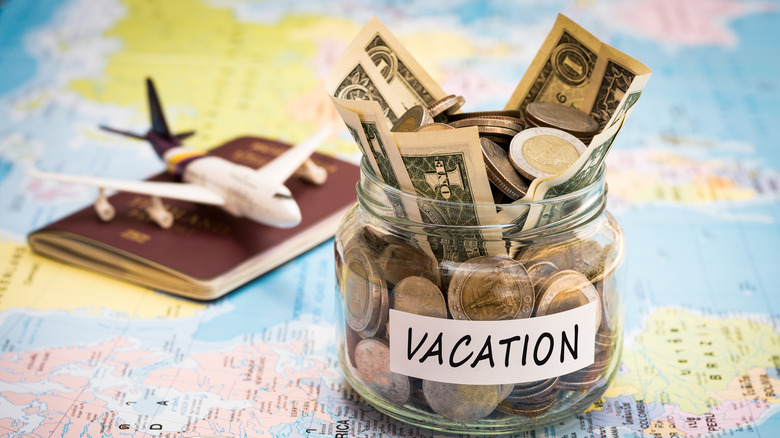Our Financial Planning Expert Weighs In On What To Do After Overspending On Vacation
In the glow of post-vacation bliss, it can be jarring to confront the reality of a depleted bank account. Whether you've indulged in fine dining beyond your budget or experienced once-in-a-lifetime moments with a luxurious price tag, the financial hangover of a vacation can linger long after the memories start to fade. Don't worry; it happens to the best of us. Shinobu Hindert, a Certified Financial Planner and author of "Investing Is Your Superpower," offers expert advice for those dealing with the consequences of vacation-induced overspending.
The first step is to take a deep breath and adopt a compassionate perspective toward yourself. Hindert emphasizes recognizing that while budgets serve an important purpose, perfection is not the expectation. "Budgets are in place to set financial guardrails for yourself, but you're also human, not a robot," Hindert remarks. This acknowledgment is the foundation for turning a disheartening situation into a valuable learning opportunity that will help you become a more financially savvy traveler.
Next, look at the damage. "Quantify how much you overspent so you have visibility into the total dollar amount," advises Hindert. Don't hide away from credit card statements or invoices floating in your inbox — confront these numbers head-on. Include sums that have not been processed yet, like money you might owe to a travel partner, pesky bank fees you couldn't avoid while traveling, and any final charges from a hotel. Once you calculate it, you can accurately plan your post-vacation financial recovery.
Recovering your finances post-vacation
To effectively navigate the path to financial recovery, Hindert advises thoroughly examining and reflecting on the extent of the overspending. Quantifying the total amount overspent versus your initial estimation for your trip is crucial for transparency and the subsequent planning process. Were your expectations too ambitious? Where did the spending go off track? The answers are key to understanding and planning for future financial resilience.
In the immediate aftermath, Hindert suggests adopting a frugal mindset to mitigate the impact of overspending. "As a buffer for your finances, you can cut back on post-vacation expenses and revise your spending for the next few weeks or months to make up the difference," she recommends. This might involve cutting back on non-essential spending and being a more savvy shopper to compensate for the deficit. Turn your post-trip recovery into a money-saving challenge. Remember, small expenses add up, from a takeaway cappuccino to a monthly manicure — if they can be cut, you'll ease your financial stress significantly.
If debt is involved, you'll have to devise a repayment plan. You're not alone — a 2024 survey by LendingTree indicates that one in five American travelers has accumulated debt because of their vacation. However, it must be handled immediately to avoid paying excessive interest rates (the average credit card interest rate is nearly 28%!). Get a balance transfer credit card, commit to a repayment timeline, or start a side hustle, like working as a part-time flight attendant, to pay the debt faster.
How to financially prepare for a vacation
To avoid similar situations in the future, Hindert shares valuable strategies to help you stay on a budget during vacations. She recommends creating spending buckets with predefined limits for different categories of expenses, such as dining out, transportation, experiences, and more. This method allows travelers to prioritize their spending according to personal preferences and prevents the feeling of being constrained by a budget.
Moreover, Hindert underscores the significance of thorough financial preparation before a vacation. "Plan a 'day in the life' and see from the time you wake up until the time your head hits the pillow how much you will spend throughout the day," she says. Familiarize yourself with local exchange rates to dodge conversion mistakes before it's too late. Hindert suggests a dedicated vacation savings account to save for the trip methodically and stick to spending limits the entire time while you're away.
Hindert also highlights the benefits of flexibility in travel planning. Being open to adjusting travel dates and destinations can lead to significant savings. Additionally, booking well in advance and considering off-season travel can unlock even more cost savings on websites like TripAdvisor and Priceline without compromising the quality of the vacation. Price alert tools like Google Flights, Kayak, and Expedia can further ensure that you secure the best deals. Through reflection, fiscal adjustment, proactive planning, and Shinobu Hindert's advice, travelers can ensure that their vacations remain sources of joy and rejuvenation rather than financial stress.


